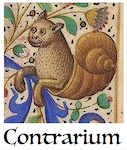Back to the new normal
In a story by August Strindberg, a student visits an island and is enchanted by it. The landscape is beautiful, his experiences are joyful and everyone is friendly. He returns overjoyed: “Perhaps you ask whether the island really was so wonderful. I answer: I found it so, but perhaps the beauty was in my way of looking at it.” (August Strindberg, “A Blue Book”)
As the island of Björkö retreats into the distance and becomes a memory, and a more mundane, boring, daily reality come to the foreground once again, I am reminded of that fragment.
Was Sweden just a dream? I came back now to a grey town, with rainy, windy weather and where people still use masks and most places are still restricted for vaccinated and/or tested until at least mid-March (Sweden already removed all their restrictions on February 9), it feels a bit as if I had been in a place out of normal reality and have now just woken up.
Perhaps it’s true, perhaps my recent experience in Sweden was more about my way of looking at it than about the realities there. Sometimes changing places can make us see everything in a new light, and being in unfamiliar territory makes us more receptive to new feelings and ideas.
Besides, I was also a little bit more disconnected from the online world, and taking more walks in the forest made me feel more connected to the real wold than to the virtual landscape of constant news and “likes” that we inhabit now.
Recently there was an ad for the so-called “Metaverse” which was quite sad. A discarded mechatronic puppy only finds solace from his depressive life as a retired toy when someone puts a VR headset on him and he can virtually reunite with old friends.
The ad seems to say: your life sucks, reality sucks, come to the “metaverse”. Perhaps that’s the plan, with all that hysteria and social distancing and restrictions and even prohibiting protests and freezing bank accounts of people who donate to a cause the government doesn’t like and the increasing ugliness of modern architecture and modern art and the modern world in general: to make everything look so difficult, dangerous, sad or ugly that we will just retreat more and more into some kind of virtual universe and abandon reality and normal social interaction altogether.
But this does not need to be our future. We can change our future and ourselves. And when we change inside, we also affect the world outside.
In Strindberg’s story, the student returns to the island a year later. This time, however, the nature feels dangerous or desolate, the people scary or unfriendly, and his experiences sad or disappointing. Yet it was the same island! What happened?
The island was the same, but the man was different. Older, embittered by life, following bad advice from bad companions, he had lost connection with everything that was good and beautiful, and “whenever a man breaks the connection with the higher sphere, which is Love and Wisdom, a hell ensues.”
His teacher, who was listening to the story, brings us the conclusion: “Let us return for a moment to your green island. There you discovered that the world is a reflection of your interior state, and of the interior state of others. It is therefore probable that each carries his own heaven and hell within him.”

